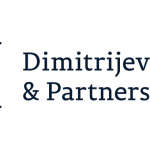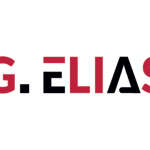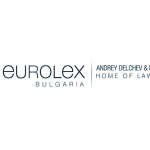1. What are the key regulatory bodies overseeing the banking and finance sector in Poland, and what is their role in ensuring compliance with financial laws and regulations?
The main supervisory body in Poland is the Polish Financial Supervisory Authority (‘Komisja Nadzoru Finansowego’ or ‘KNF’). KNF supervises the banking, capital, insurance and pension sectors, payment institutions and payment service offices, electronic money institutions and credit unions.
Moreover, KNF issues key positions regarding the functioning of the financial market. The important competences of the Polish Financial Supervision Authority include carrying out inspections of financial institutions and issuing recommendations.
2. How has the Polish banking sector evolved in terms of digital innovation, and what legal challenges or opportunities have arisen with the increasing adoption of fintech solutions?
The banking sector in Poland is considered one of the most digitised and innovative in the European Union1.
In recent years, the Polish banking sector has introduced plenty of solutions adopted on the basis of the new technology and regulations facilitating it (including, eg, cloud computing, AI, innovative online onboarding PIS and AIS services).
Generally, KNF actively supports the use of new technologies in the financial market, including in the field of crowdfunding or payment services2.
Most of the banking institutions can conclude a bank account agreement without the need to visit the bank’s premises or allow the client to verify its identity (ie for AML/CFT purposes) with the use of innovative technologies (eg with the use of video verification or biometric identification).
3. Can you provide an overview of the most recent developments in financial regulations related to consumer protection and how they impact banking practices in Poland?
In this regard, the Act of 16 August 2023 amending certain acts in connection with ensuring the development of the financial market and the protection of investors in this market was recently adopted.
One of the key changes introduced by the Act is the restriction of the sale of corporate bonds to retail customers outside the regulated market or alternative trading system and crowdfunding platforms.
As a rule, the Polish legal system put a special emphasis on the protection of consumers with regards to the use of financial products, which is expressed by, eg, a special interest of the KNF in mediation proceedings between banks and borrowers3.
4. What are the legal requirements and processes for establishing a foreign bank’s presence in Poland, and how have recent changes in foreign investment laws affected this?
A credit institution (EU-based licence) may conduct banking activities in Poland through a branch or as a part of its cross-border activities.
Activity of a credit institution on a cross-border basis can commence as soon as the KNF receives a relevant notification from the competent supervisory authorities of the home state, while conducting activities through a branch requires setting up a permanent presence in the territory of Poland as well as relevant notification.
In turn, the establishment of a branch of a foreign bank (outside EU-based licence) in the territory of Poland takes place on the basis of a permit of the KNF issued at the request of the bank concerned.
As a rule, the process of establishment of a foreign bank’s/credit institution’s presence in Poland is being carried out on the basis of the Polish Banking Act and executive regulations, which transpose the general obligations resulting from EU directives.
5. What legal frameworks govern the issuance and trading of financial instruments in the Polish capital markets, and how does Poland align with EU regulations in this regard?
As of now, the legal framework for the issuance and trading of financial instruments consists of:
- Act of 21 July 2006 on supervision of the financial market;
- Act of 29 July 2005 on capital market supervision;
- Act of 29 July 2005 on trading in financial instruments;
- Act of 29 July 2005 on public offering and the conditions for introducing financial instruments into the organised trading system of public companies.
6. How does Poland address anti-money laundering (AML) and know your customer (KYC) regulations in the financial sector, and what are the recent changes or trends in this area?
The current binding Polish AML regulations are the result of transposition of the EU AML IV-VI directives.
The legal framework of AML/CFT in Poland includes the Polish AML Act along with executive regulations, as well as the guidelines, positions and communications of the KNF and the General Inspector of Financial Information, which obligated institutions providing services in Poland (eg, credit institutions or brokerage houses) should take into account.
The last significant amendment to the AML Act was introduced in 2021. The Polish legislator is currently preparing to adapt the legal framework of AML/CFT in Poland to the incoming changes resulting from the AML Package, which is currently in draft state.
7. What is the current state of cryptocurrency and blockchain regulations in Poland, and how are these evolving to accommodate the growing interest in digital assets?
In Poland no comprehensive and specific regulations regarding crypto-assets and blockchain have been adopted yet. The Polish financial market is awaiting the entry into force of the provisions of the Markets in Crypto-Assets Regulation (MiCA).
The Polish legislator has currently included selected issues related to blockchain technology in national regulations.
For example, the provisions of the Polish Commercial Companies Code amended in 2021 enable joint-stock companies and simple joint-stock companies to maintain a register of shareholders in the form of a distributed and decentralised database.
In addition to the above, the Polish AML Act regulates the activities of suppliers in the field of virtual currencies, including the obligation to obtain an entry in the register of activities in the field of virtual currencies. Additionally, KNF has issued a number of communications mainly on explaining the nature and risks of crypto-assets.
8. Can you discuss the role of law firms in facilitating mergers and acquisitions within the Polish banking and finance sector, and what are the typical legal challenges faced in these transactions?
Polish law firms actively participate in M&A transactions on the financial market.
The role of the law firm in such transactions is crucial and it includes mainly structuring of the transaction and the transaction documentation taking into account the potential regulatory requirements (including in particular clearances from supervisory and/or competition authorities), support in obtaining of the required regulatory clearances and finally support in negotiations and subsequently handling post-transaction processes.
The main challenges related to M&A processes in the Polish financial market are the regulatory due diligences and the potential requirements to obtain permits from the KNF and President of the Office for Competition and Consumers’ Protection as well the need to meet regulatory requirements related to listed companies which has significant impact on the structure of the transaction and the timing thereof.
9. How has Poland adapted to recent European Union directives related to banking and finance, such as MiFID II and PSD2, and how have these directives impacted the market?
The implementation of the PSD2 in Poland, namely the Polish Act on Payment Services significantly increased users’ awareness of electronic payments.
Since the entry into the force of the said regulation (along with the number of executive regulations and KNF’s recommendations/positions), the rate of online fraud decreased, the protection of customers of financial institutions improved (including due to the implementation of SCA), and customers gained access to new, innovative open banking services (AIS or PIS).
The implementation of MIFID II in Poland in the form of the Act on Trading in Financial Instruments ensured more cohesive investor protection and increased the level of confidence in the financial markets, which was rather low due to the subprime mortgage crisis.
Transposition of MIFID II in Poland was also considered significant to the market participants mainly due to the increase in the obligations of distributors of financial instruments to improve the transparency of trading.
10. What are the legal considerations for financial dispute resolution and arbitration in Poland, and what options are available for businesses seeking to resolve financial disputes through legal channels?
In Poland, if the parties to a dispute so choose, a financial market dispute can be resolved out of court. Currently, alternative dispute resolution with regards to the so-called CHF loan cases is considered as one of the main financial market issues in Poland. KNF takes an active part in mediation in these cases.
There are three main ADR centres offering out-of-court dispute resolution in the financial market:
- Arbitration Court at the PFSA;
- Financial Ombudsman;
- Bank Consumer Arbitration.
Footnotes
1. Many think tanks in the area of finance innovations are actively operating in Poland, such as FinTech
Poland, which indicates a significant increase in interest in technology and modernisation of financial
services
www.fintechpoland.com/future-finance-poland-in-a-few-years-poland-can-become-one-of-the-30-most-competitive-financial-centers-in-the-world/
2. KNF has recently launched the Innovation Hub Programme under which the supervisory body conducts a dialogue with FinTech companies www.knf.gov.pl/en/MARKET/Fintech/Innovation_Hub
For more information contact

Aleksandra Bańkowska
Partner PwC Legal, advocate
E: aleksandra.bankowska@pwc.com

Łukasz Łyczko
Counsel PwC Legal, attorney-at-law
E: lukasz.lyczko@pwc.com

Konrad Frąckowiak
Counsel PwC Legal, advocate
E: konrad.frackowiak@pwc.com

Aleksander Wasiak
Senior associate, attorney-at-law trainee
E: aleksander.wasiak@pwc.com















